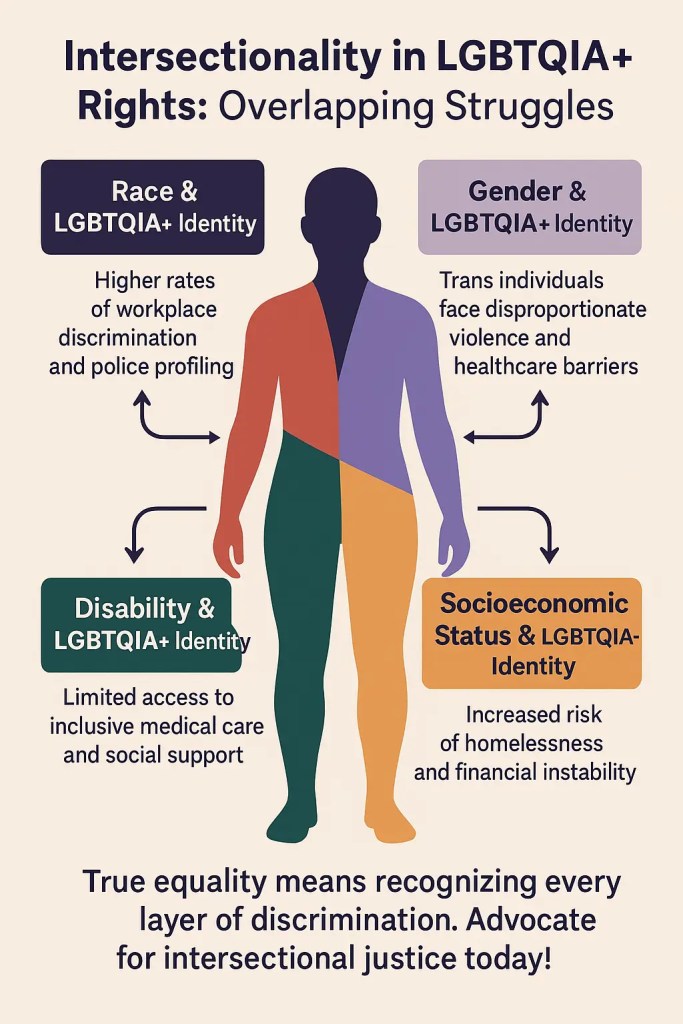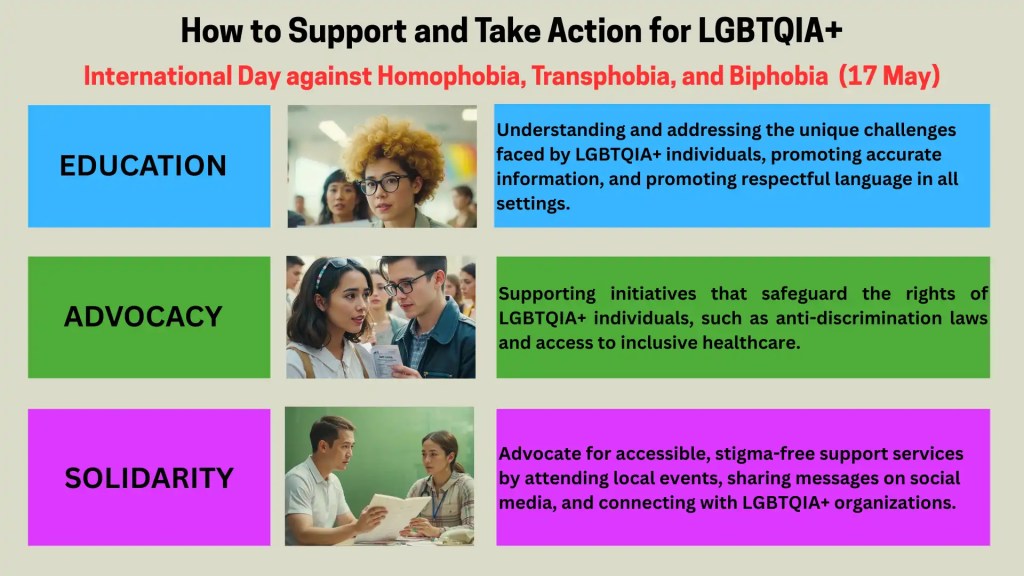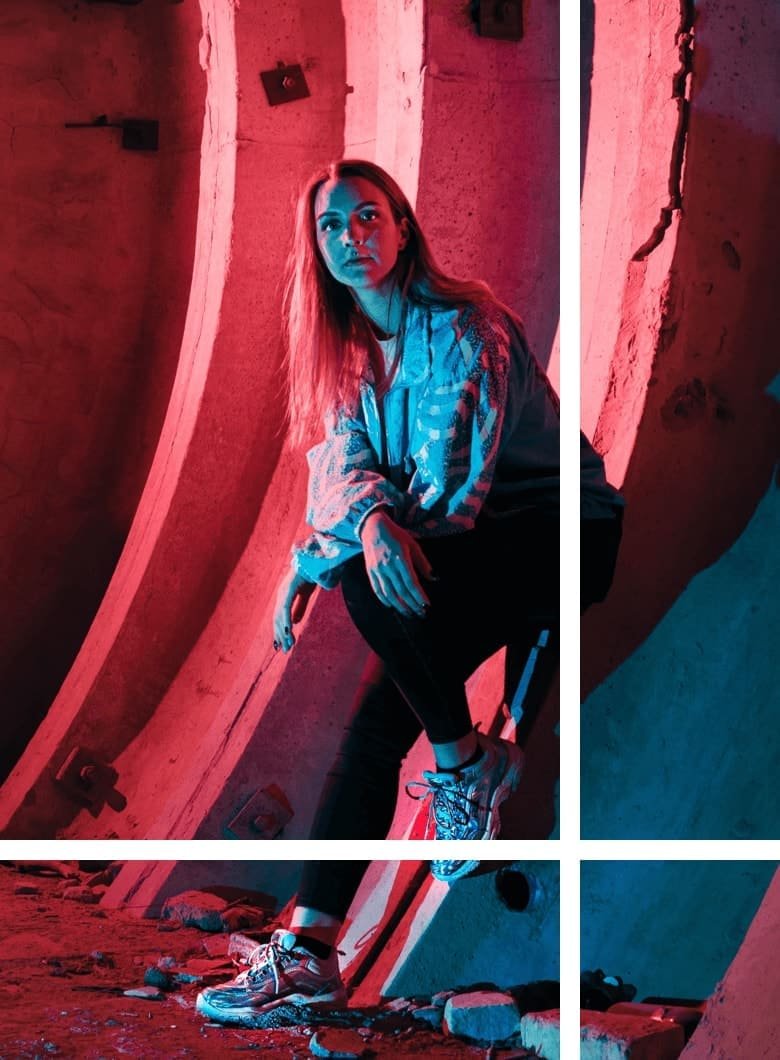Uniting for Love and Justice: IDAHOTB 2025
“What would the world look like if love and justice, along with identity, were truly free from fear?” This invites readers to reflect on the impact of discrimination and the importance of equality. IDAHOTB 2025 is an occasion to understand his with all its nuances.
Every year on May 17, the world unites to mark the International Day Against Homophobia, Transphobia, and Biphobia – a powerful reminder that love and justice, dignity, and equality are universal rights. This day shines a spotlight on the courage of LGBTQIA+ individuals who challenge prejudice and discrimination simply by being themselves. As societies evolve, IDAHOBIT urges us to reflect on both the progress made and the hurdles that remain, inspiring collective action to ensure that no one is left behind, regardless of who they love or how they identify.
International Day Against Homophobia, Transphobia, and Biphobia 2025: Promoting Equality, Freedom, and Justice for All
The International Day Against Homophobia, Transphobia, and Biphobia (IDAHOBIT) is a global event celebrated annually on May 17, aiming to raise awareness about the violence and discrimination faced by the LGBTQIA+ community, commemorating the World Health Organization’s decision to declassify homosexuality as a mental disorder in 1990.

View interactive map.
Intersectionality in LGBTQIA+ Communities: Love and Justice
Intersectionality highlights how multiple social identities—such as race, gender, and socioeconomic status—shape a person’s experience of discrimination and privilege. LGBTQIA+ individuals who belong to other marginalized communities, like migrants or people with disabilities, often face compounded barriers to healthcare, employment, and safety. A one-size-fits-all approach to human rights fails to address the unique struggles of those who experience overlapping forms of discrimination. The fight for equality must recognize intersectionality, ensuring that advocacy efforts address the diverse needs of LGBTQIA+ individuals across different social, cultural, and economic backgrounds. True inclusion means not only supporting LGBTQIA+ rights but also tackling systemic inequalities that affect individuals within the community differently.

The Significance of IDAHOBIT
IDAHOBIT is a day of commemoration and action for equality, dignity, and justice. It serves as a reminder of the courage and resilience of those fighting against discrimination based on sexual orientation, gender identity, and expression. It’s a time to reflect on progress, honor injustices, and reaffirm our collective commitment to creating inclusive societies.
2025 Theme: “No One Left Behind: Equality, Freedom, and Justice for All”
The 2025 theme, “No one left behind: Equality, freedom, and justice for all,” underscores the need for equal rights and protections for all, aligning with the United Nations’ 2030 Agenda for Sustainable Development, emphasizing systemic barriers and addressing discrimination against LGBTQIA+ individuals.
Progress and Ongoing Challenges: Love and Justice for All
Global progress in LGBTQIA+ rights has been significant, with 11 countries legalizing marriage equality since 2019, and 13 decriminalizing same-sex relationships since 2017. International organizations are advocating for inclusive healthcare, legal protections, and social acceptance to protect sexual and gender minorities.

Over 60 countries still criminalize consensual same-sex relationships, with LGBTQIA+ individuals facing violence, exclusion, and even the death penalty in some regions. Discrimination in healthcare, employment, and education persists, exacerbated by harmful rhetoric and restrictive laws that restrict freedom of expression.
Why IDAHOBIT Matters
IDAHOBIT is recognized in over 130 countries and is officially acknowledged by multiple governments and international institutions.
The day is an opportunity to:
- Celebrate sexual and gender diversity.
- Raise awareness about ongoing injustices.
- Advocate for legal and social reforms.
- The goal is to promote solidarity and support for LGBTQIA+ individuals, particularly those who face multiple forms of marginalization, such as migrants, refugees, and those living in conflict zones.
How to Support and Take Action
Supporting IDAHOBIT can take many forms, from participating in awareness campaigns and educational events to advocating for inclusive policies in workplaces, schools, and communities. Here are some actionable steps:
- Educate yourself and others: Learn about the unique challenges faced by LGBTQIA+ people and share accurate information to combat stereotypes and misinformation.
- Promote inclusive language: Use and encourage respectful and affirming language in all settings.
- Advocate for policy change: Supporting initiatives that safeguard the rights of LGBTQIA+ individuals, such as anti-discrimination laws and access to inclusive healthcare.
- Show solidarity: Attend or organize local events, share messages of support on social media, and connect with LGBTQIA+ organizations.
- Support mental health and well-being: Recognize the impact of discrimination on mental health and advocate for accessible, stigma-free support services.

Conclusion
As we commemorate IDAHOBIT, let us reaffirm our commitment to building a world where everyone can live authentically and safely. True progress lies in our willingness to challenge injustice, embrace diversity, and amplify the voices of those too often silenced. By standing together-across communities and borders-we can transform awareness into meaningful change, ensuring that equality, freedom, and justice are realities for all, not just aspirations.
It is sad that in the modernity and development that humans have achieved, we still have to advocate for equality. We stress once again –
True equality means recognizing every layer of discrimination. Advocate for intersectional justice today!”

